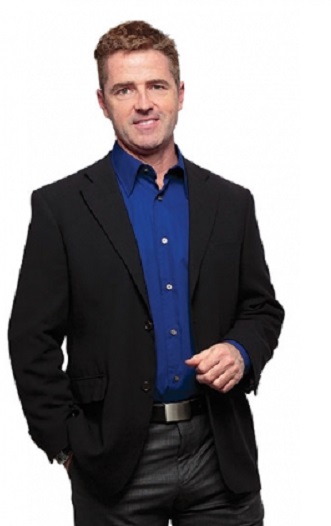Every disruption creates a new opportunity.

Chicago Sports and
Entertainment Partners.
“Amputees don’t focus on what they don’t have,” says Patrick Quinn. “They work with what they do have, and they find ways to maximize it.”
That’s a potent message under ordinary circumstances. It has become especially relevant during the COVID-19 crisis, as Americans struggle to adjust to the sacrifices of life under quarantine.
For the amputee Paralympians Quinn represents at Chicago Sports and Entertainment Partners (CSEP), adjustment and sacrifice are second nature by now.
“Adaptive athletes exemplify the idea of rising to the challenge,” says Quinn, a former Olympic hopeful in luge and speed skating. “They’re role models of perseverance and courage in the face of adversity.” Above all, they’ve learned to stay positive while confronting health challenges and life-altering disruptions to their accustomed routines—the same circumstances so many of us now find ourselves in.
CSEP has been helping amateur athletes tell their stories since 2009. With a roster that includes both Paralympians and Olympians, CSEP enables athletes to generate income through speaking engagements, endorsements, book deals, social media channels and other ventures. The agency’s clientele includes high-profile amputee competitors such as Amy Purdy, Melissa Stockwell, Matt Stutzman and Rudy Garcia-Tolson.
Like everyone else, those athletes have seen their lives turned upside down in the last two weeks, their normal routines shattered and their plans thrown into uncertainty.
“Nobody’s complaining,” says Quinn. “They all have their health, and they feel grateful for that. Everybody’s foremost concern is public health. They understand that sports don’t mean that much in the big picture. But at an individual level, this is still an adjustment and a challenge for them, and it’s stressful—as it is for everyone.”
The postponement of the Paralympics until 2021 actually relieved a major source of stress. For several weeks, athletes gunning for medals in Tokyo had to conduct their preparations with no certainty about whether the Games would actually take place—and, in most cases, without access to their training facilities. They also had to deal with the cancellation of international meets and qualifying competitions that would have determined who was eligible to participate in the Paralympics.
Although that issue is now resolved, the pandemic is still affecting CSEP clients who rely on live speaking gigs for their income. Nobody’s filling auditoriums for the foreseeable future, no matter how compelling the story might be, so the impact on the bottom line is substantial.
“Melissa Stockwell is the main breadwinner for her family,” says Quinn. “She’s very good at compartmentalizing, but it’s still a lot of weight when you’re losing money and you’re not sure what the future holds.”
that resonate in the era of coronavirus.
But, true to form, most of the Paralympians in Quinn’s stable are looking for ways to turn their losses into opportunities for growth.
“In some cases, it has improved the quality of their training,” says Quinn. “It simplifies their lives—they’re not traveling, and they have fewer demands on their time and attention, so they can really just bear down and focus on their training.”
Other CSEP athletes are taking advantage of the break in their routines to focus attention on projects that had previously been relegated to the back burner. One CSEP client has dusted off a podcast initiative and moved it forward. Another reactivated work on a book proposal that had lain dormant.
Meanwhile, Quinn has pivoted away from in-person bookings and started making his clients available for real-time, online speaking engagements.
“Everybody’s moving to the ‘work at home’ model, but that can be fragmented and uninspiring and isolating when you’re not used to it,” he says. “So we’ve created a program to bring people together while working from home and inject some inspiration via live-streamed lunchtime speakers.”
The program, dubbed “Inspiration Online,” includes Paralympians Blake Leeper, Purdy and Stockwell, all of whom have received a crash course in DIY digital streaming.
“We’re trying to keep it simple,” says Quinn. “They can do the events from home or wherever they may be. But we needed to teach them how to get good lighting and good sound, so that it’s a professional presentation. And it’s not easy to bring the energy on a streaming platform. There’s not an audience right in front of you to feed off. Connecting with people online is a different challenge. You need to generate your own energy.”
That’s just part of the routine for an adaptive athlete: another adjustment, another challenge, another commitment to making the most of available resources and maximizing capacities.
“The Paralympic story is the right story for the times,” says Quinn. “There’s a lot we can all learn from it.”